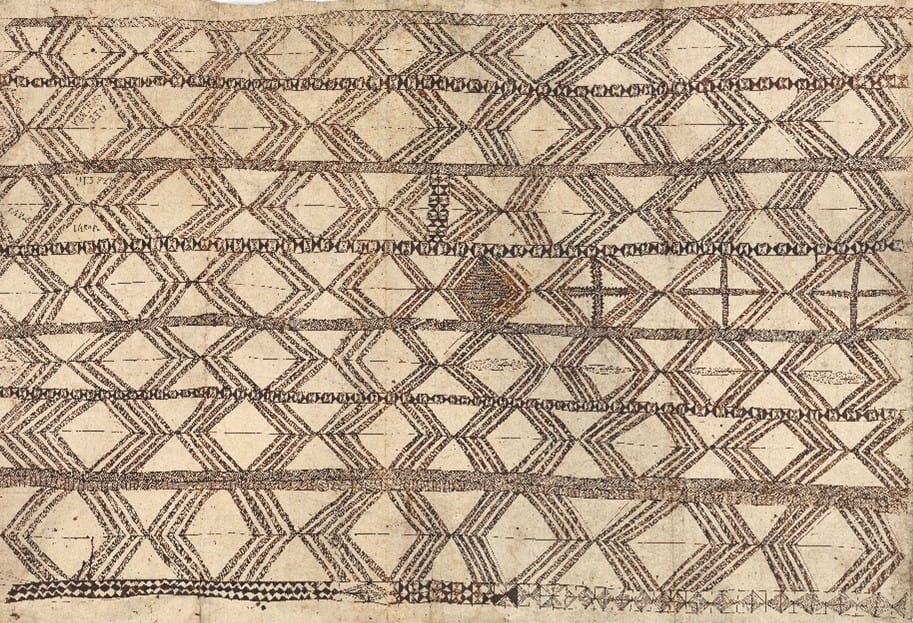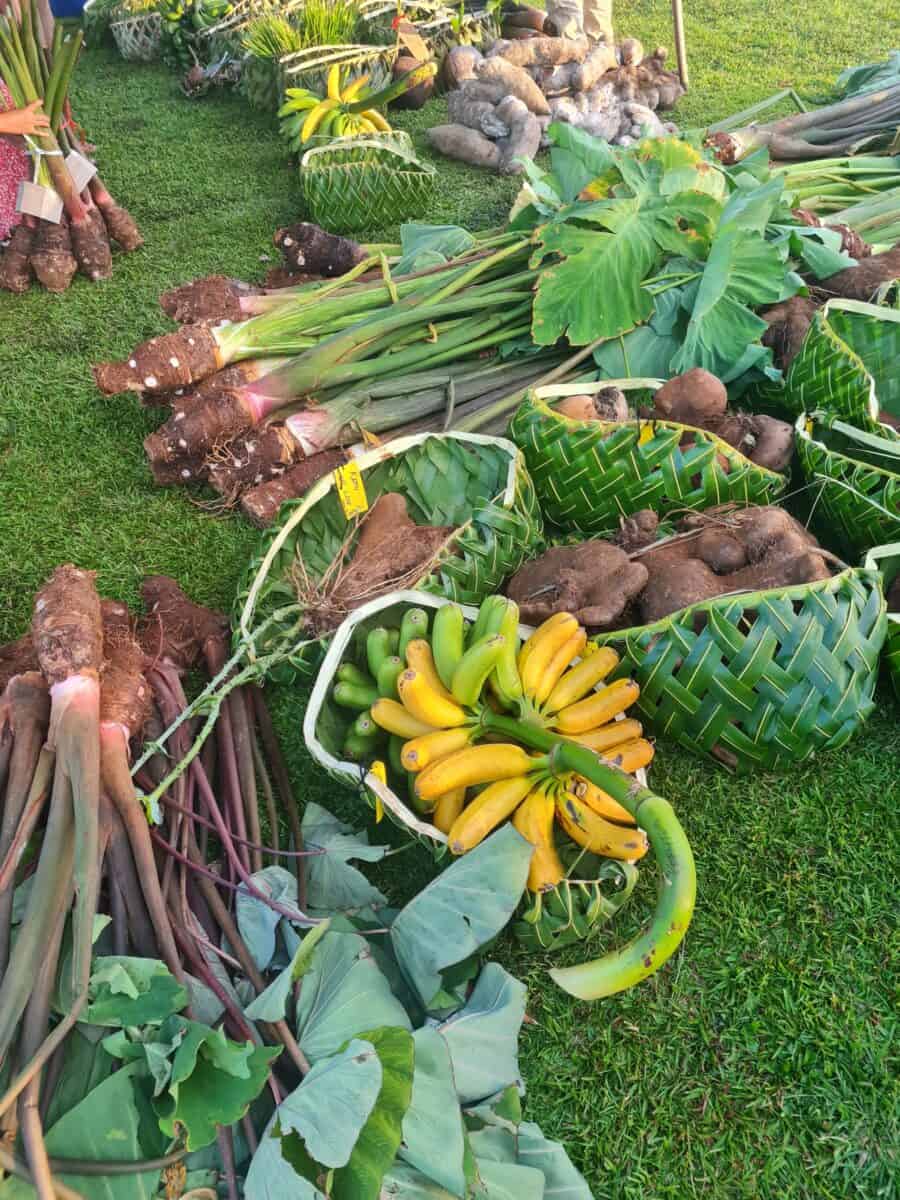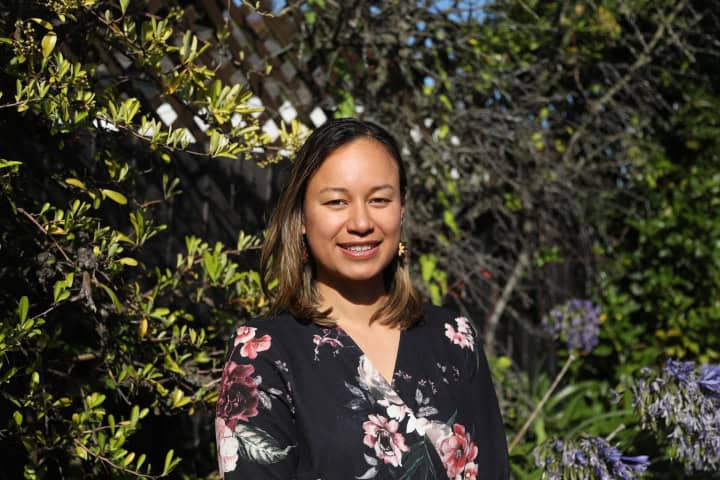Research voices: Dr Cloe Posimani
17 April 2024
Dr Cloe Posimani is a medical doctor engaging with public health research to benefit the country of her heritage.
Cloe is a descendent of Niue (Tuapa) and grew up in New Zealand. Following her medical training, she worked in hospitals and general practices in several towns and cities around the country. Recognising that many of the chronic diseases she treats in the community are impacted by the social determinants of health, such as housing quality, access to healthy food and adequate income, she decided to undertake a Master’s in Public Health (MPH) at the University of Otago Ōtautahi Christchurch.
Cloe has strong links to Niue, where her father grew up, and several family members are still living there. Following work in Niue with the Pasifika Medical Association Medical Assistance Team (PACMAT) during the Covid-19 pandemic, organised by her mentor Dr Collin Tukuitonga, Cloe was keen to work more with her community.
Doing research with, and for, Niue people
Public health lectures by Dr Christina McKerchar on Indigenous research methodologies inspired Cloe to focus her MPH research in this area. She went on to design a project that explores Niue views and solutions for healthy eating, under the supervision of Dr McKerchar, Dr Jess Pasisi and Dr Angela Curl (Dr McKerchar and Dr Curl are both Healthier Lives researchers).
Niue’s food environment has changed considerably in the last few decades and like many countries, Niue now has high levels of non-communicable diseases, such as cardiovascular disease and diabetes. Understanding the views held by the people affected by these changes in food availability are essential to identifying viable solutions.
The methodology used for this qualitative study was developed by Dr Jess Pasisi (Mutalau mo Hikutavake, Niue) for research with, and for, Niue people. It uses the traditional Hiapo bark cloth as a metaphor for centring Niue-specific knowledge, values, culture, and practices. Central to these four areas are the principles of respect and relationships, which helped guide Cloe during her data collection.

Strengthening relationships
While Cloe had visited Niue several times before, going back as a researcher required a different approach to earn people’s trust. Positionality – how you are perceived in the community, including mataohiaga or genealogical connections, your background and how you identify and carry yourself – is important. Alongside organising and conducting interviews, Cloe spent time strengthening her relationships by working in a local café and collecting hihi snail shells with her family for the traditional kahoa hihi necklaces of Niue.
Relationships and flexibility were essential to the success of this research. The Niue lifestyle is very busy – community life, family life, and work life take up much of people’s day. Parents are not often in the same place at the same time as they “wear many hats” such as in government roles or business ownership, as well as tending to their bush gardens and food collection. Cloe had to be flexible and responsive to when people were available: “people said they were free on this day, at this time, at this house”. The interviews were made possible by a relation of Cloe’s – their generous contribution was central to the study through contacting collaborators and organising meet-ups.
The community response to the study exceeded Cloe’s expectations. She is excited to finish analysing the findings of her research, which was assisted by a travel grant from Heathier Lives, and she plans to return to Niue later in the year to present these findings to the community.
Niue’s changing food environment
Some of the themes emerging from her interviews are around community cohesion and village strengths. People recognised that it can be challenging to eat in the way they want to eat in Niue – the way that makes them happier and healthier, i.e. eating lots of fruit and vegetables – but they wouldn’t want to leave Niue because their sense of being “of the Island” and “of the ocean” is very strong.

The changing climate is one of the issues identified as impacting the changing food environment in Niue, influencing what food can be grown and collected. Cloe had the opportunity to attend a climate change workshop during her visit. Niue people have known about climate change for a long time – in many ways they are more aware of climate change impacts than most due to their proximity to the ocean and their significant relationship and reliance on the environment, both as a provider of food and as part of their cultural practices.
One example of these changes is the impact on fruit trees. Cloe heard from her collaborators that Niue used to be abundant in avocados and mangoes. There are still a few trees around but due to climate change and the weather being more unpredictable, trees can flower at unusual times and heavy rains can wash the flowers away before they are able to fruit. Although there are other local fruits that grow well, such as pawpaw and bananas, Niue people feel that the climate has affected their overall access to fresh fruit. Fish supplies are also impacted as the seas have become wilder.
Focused on the future
Niue people are creative in finding ways to protect their environment – there is a new initiative for Niue as a guardian of the ocean space, where you can sponsor a part of the ocean to help protect it.
Cloe hopes that her research will shed more light on the experiences and challenges facing the people of Niue, and she is committed to doing what she can to uphold the knowledge held within her community to help facilitate future initiatives.
Other articles in this series:


